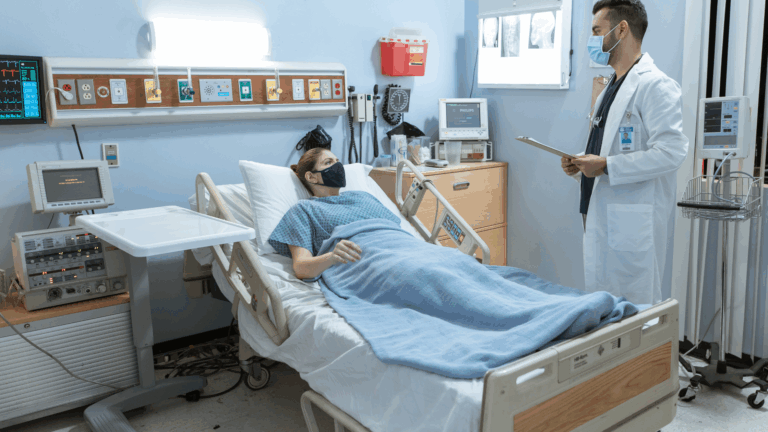 In the world of supplementary healthcare, medical bills reflect more than just numbers: they tell stories of care, resources and, often, waste. One of the biggest silent villains on these bills is prolonged hospitalization, which has a significant financial impact on health insurance companies.
In the world of supplementary healthcare, medical bills reflect more than just numbers: they tell stories of care, resources and, often, waste. One of the biggest silent villains on these bills is prolonged hospitalization, which has a significant financial impact on health insurance companies.
This article explores how predictive technologies and automated auditing can identify and control unnecessary expenses, promoting more efficient management of medical bills.
The Impact of Prolonged Hospitalizations on Medical Bills
Hospital stays beyond the ideal clinical time are one of the main factors in the increase in healthcare costs. Not only do they increase medical bills, but they also expose patients to unnecessary risks, such as hospital-acquired infections and complications associated with length of stay.
In many cases, these prolonged hospitalizations go unnoticed until the time of the audit, when the financial impact has already been consolidated.
 Why Are Prolonged Hospitalizations Difficult to Control?
Why Are Prolonged Hospitalizations Difficult to Control?
Most operators still use manual or semi-automated audit models, which analyze medical bills retroactively, i.e. when the service has already been provided and the bill has been invoiced.
This model faces limitations such as:
- Time-consuming and error-prone analysis.
- Difficulty identifying patterns of overstaying.
- Little agility to intervene during hospitalization.
Predictive Technology: The Key to Reducing Medical Bill Costs
The good news is that there are already technological tools capable of predicting and flagging hospitalizations at risk of being unduly prolonged. Systems such as SAUDI - Sistema de Auditoria de Contas Médicas - use artificial intelligence to monitor clinical variables, average length of stay and costs, issuing alerts in real time.
In this way, operators are able to act before the impact materializes on medical bills, with clear benefits:
Reduction of waste.
Improved resource allocation.
Increased operational efficiency.
Greater compliance with ANS guidelines.
The Role of Telemedicine in Reducing Prolonged Hospitalizations
Telemedicine is also becoming an important ally in this scenario. By allowing patients to be monitored remotely, it is possible to safely anticipate discharges, offer post-discharge support and reduce the length of hospital stay - elements that directly impact on the reduction of medical bills.
In addition, telemedicine favors home monitoring, avoiding unnecessary readmissions.
 Intelligent Auditing: A Strategic Need for Operators
Intelligent Auditing: A Strategic Need for Operators
Predictive auditing of medical bills represents a new level in supplementary health management. By combining automation, predictive analysis and continuous monitoring, operators can not only reduce costs, but also improve the quality of care provided to beneficiaries.
SAUDI is the digital auditing solution that has already transformed the management of dozens of operators in Brazil by offering:
✔️ Automatic and intelligent auditing of medical bills.
✔️ Significant reduction in disallowances and errors.
✔️ Greater transparency and regulatory compliance.
Controlling Medical Accounts Starts with Information and Technology
Prolonged hospitalizations may seem invisible, but their effects on medical bills and the sustainability of operators are tangible. Technology, combined with telemedicine and predictive auditing, is the key to transforming this reality.
👉 Do you want to reduce costs and increase your operator's efficiency? Talk to SAUDI and discover how our technology can revolutionize your medical bill management.










